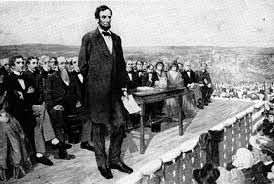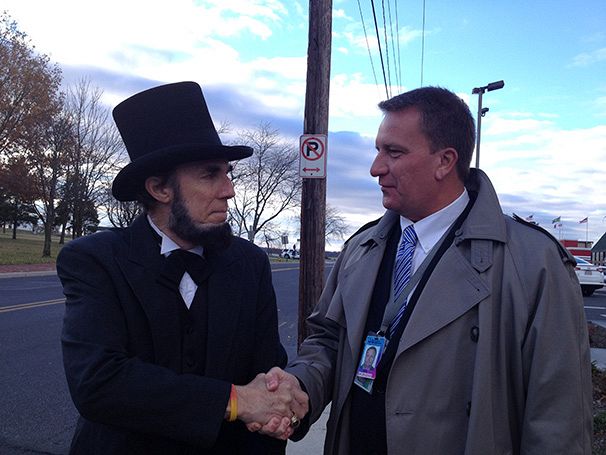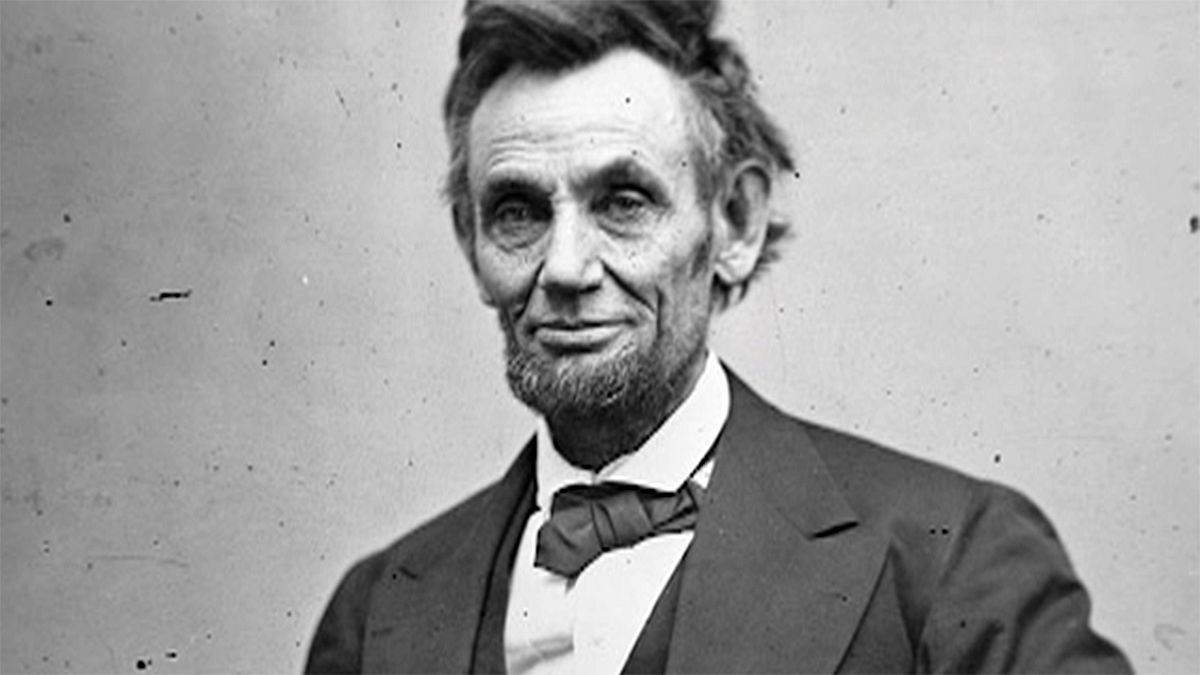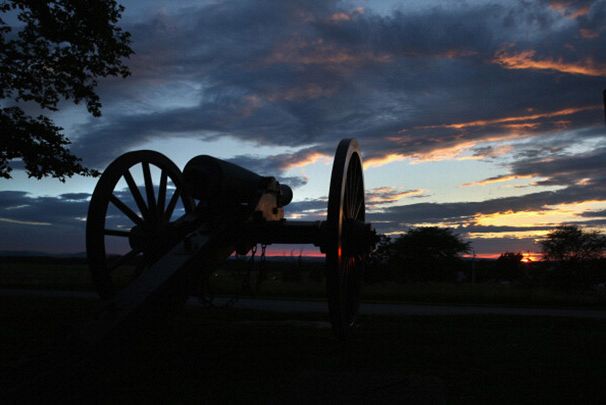They were only some short remarks, about 270 words, delivered at the site of one of the bloodiest battles of the Civil War in just two minutes. Yet, those words became one of the most iconic speeches in American history: Abraham Lincoln’s Gettysburg Address.
150 years later, thousands gathered at the battlefield just outside this small Pennsylvania town to pay tribute to history and commemorate a transforming moment for the values of freedom, equality and justice that America was founded on.
Tuesday’s event, included naturalization ceremonies led by Supreme Court Justice Antonin Scalia for 16 new citizens. Scalia, Interior Secretary Sally Jewell, Pennsylvania’s Governor Tom Corbett and the state’s two senators in Washington were among those presenting memorial wreaths.
Secretary Jewell said, Lincoln’s words “remind us of what it means to be an American”, they “stand at the vortex of our national consciousness,” Jewell told the crowd. “Hearing them, we are reminded of the sacrifice of so many for freedom.”
“President Lincoln sought to heal a nation’s wounds by defining what a nation should be,” said Pennsylvania Governor Corbett, calling Lincoln’s words superb, his faith deep and his genius profound. “Lincoln wrote his words on paper, but he also inscribed them in our hearts.”
Video: American politicians and celebrities recite the Gettysburg Address
Echoing Lincoln, keynote speaker and Civil War historian James McPherson said the president took the dais in November 1863 at a time when it looked like the nation “might indeed perish from the earth.” “The Battle of Gettysburg became the hinge of fate on which turned the destiny of that nation and its new birth of freedom,” McPherson said.
President Lincoln delivered his Gettysburg Address four and a half months after the Battle of Gettysburg at the dedication of the Soldiers’ National Cemetery on November 19, 1863. More than 7000 soldiers had died and 40,000 were wounded in what would become a turning point in the Civil War.
 Had the Confederate troops won the battle at Gettysburg, the US capital Washington might have been theirs for the taking. Morale among the war-weary Union public might have collapsed and Lincoln might have sued for peace – and another English-speaking state in North America would have come into existence, one that would not have been based on the founders’ ideals, but on slavery.
Had the Confederate troops won the battle at Gettysburg, the US capital Washington might have been theirs for the taking. Morale among the war-weary Union public might have collapsed and Lincoln might have sued for peace – and another English-speaking state in North America would have come into existence, one that would not have been based on the founders’ ideals, but on slavery. By the time Lincoln delivered his remarks at the new Gettysburg cemetery, the specter of a Confederate invasion of the Union had largely disappeared. His northern troops had gained the upper hand, and southern defeat only seemed a matter of time given the North’s superiority in men and industrial power.
By the time Lincoln delivered his remarks at the new Gettysburg cemetery, the specter of a Confederate invasion of the Union had largely disappeared. His northern troops had gained the upper hand, and southern defeat only seemed a matter of time given the North’s superiority in men and industrial power.
In the short oration, Lincoln spoke of how democracy itself rested upon “the proposition that all men are created equal,” a profound and politically risky statement for the time. Slavery and the doctrine of states’ rights would not hold in the “more perfect union” of Lincoln’s vision.
“Lincoln would have been surprised by the reverence accorded to him by future generations,” McPherson said, noting Lincoln himself held in high regard the country’s founders. “Would they preserve that heritage, or would they allow it to perish from the earth?” McPherson said.
McPherson said the Gettysburg Address, despite its short length, managed to weave together themes of past, present and future; continent, nation and battlefield; and birth, death and rebirth. “Men died that the nation might live,” McPherson said. “Yet the old nation also died,” and with it, the system of bondage that enslaved some four million Americans.

